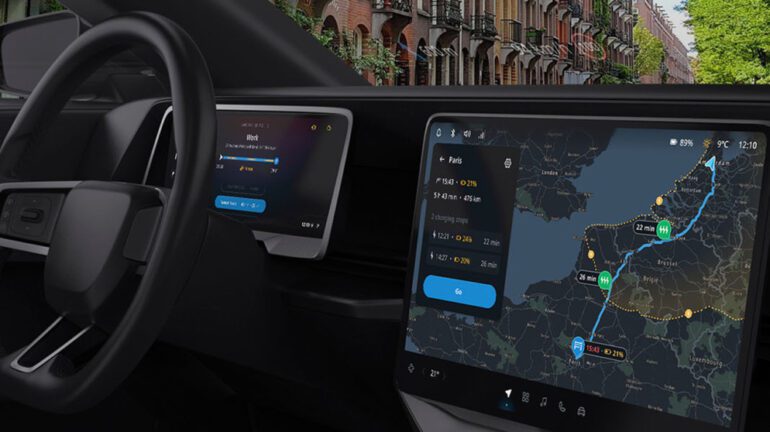TL;DR:
- Microsoft and TomTom collaborate on an AI-driven automotive assistant.
- The AI assistant promises sophisticated voice interaction for natural conversations while driving.
- It integrates OpenAI’s language models and Microsoft’s advanced AI technologies.
- The technology is expected to be adopted by major automobile manufacturers.
- TomTom’s Digital Cockpit will incorporate this AI into in-vehicle infotainment systems.
- Mercedes had previously incorporated ChatGPT models into select vehicles.
- TomTom will showcase the AI at CES in January.
Main AI News:
Microsoft and TomTom have joined forces to introduce a cutting-edge generative AI assistant for vehicles, poised to revolutionize the automotive industry. TomTom, renowned for its GPS platforms, unveiled this innovation as a “fully integrated, AI-powered conversational automotive assistant,” set to become a staple in dashboard infotainment systems in the not-so-distant future. With ambitious claims, this AI promises to deliver a level of “more sophisticated voice interaction,” allowing drivers to engage in natural conversations while seamlessly navigating, locating stops along their route, controlling onboard systems, adjusting windows, and managing a multitude of other tasks while on the road.
The partnership between TomTom and Microsoft signifies a pivotal collaboration that harnesses the power of OpenAI’s extensive language models, supplemented by Microsoft’s cutting-edge products, such as Azure Cosmos DB and Azure Cognitive Services. Azure Cosmos DB, a versatile multi-model database, and Azure Cognitive Services, a suite of APIs tailored for AI applications, collectively contribute to shaping a highly capable AI assistant, drawing inspiration from the most recent technological advancements in the field.
TomTom has assured that this voice assistant will seamlessly integrate into various interfaces offered by major automobile manufacturers, emphasizing that these automotive companies will retain ownership of their distinctive branding. This implies that we can anticipate this groundbreaking technology to be featured in a wide array of vehicles from various manufacturers. Although specific partnerships with established vehicle manufacturers have not yet been disclosed, TomTom has confirmed that this advanced AI will be a core component of their proprietary Digital Cockpit—an open and adaptable in-vehicle infotainment platform.
While this may not mark the pioneering endeavor to incorporate a Large Language Model (LLM) into automobiles, it is certainly a significant development in the ever-evolving automotive landscape. Mercedes, for instance, initiated a three-month beta program in June that integrated ChatGPT models into select vehicles, utilizing Microsoft’s Azure OpenAI service. TomTom intends to unveil its AI prowess at the upcoming CES event in January, offering a glimpse into the functionality and impact of this transformative technology. As CES unfolds, we eagerly await further insights into the capabilities and potential of this AI-driven automotive assistant.
Conclusion:
The collaboration between Microsoft and TomTom to introduce an AI-powered automotive assistant represents a significant advancement in the automotive industry. This technology’s potential integration into a wide range of vehicles and infotainment systems has the potential to transform the driving experience and create new opportunities for the market. The showcase at CES will provide further insights into its capabilities and impact.

